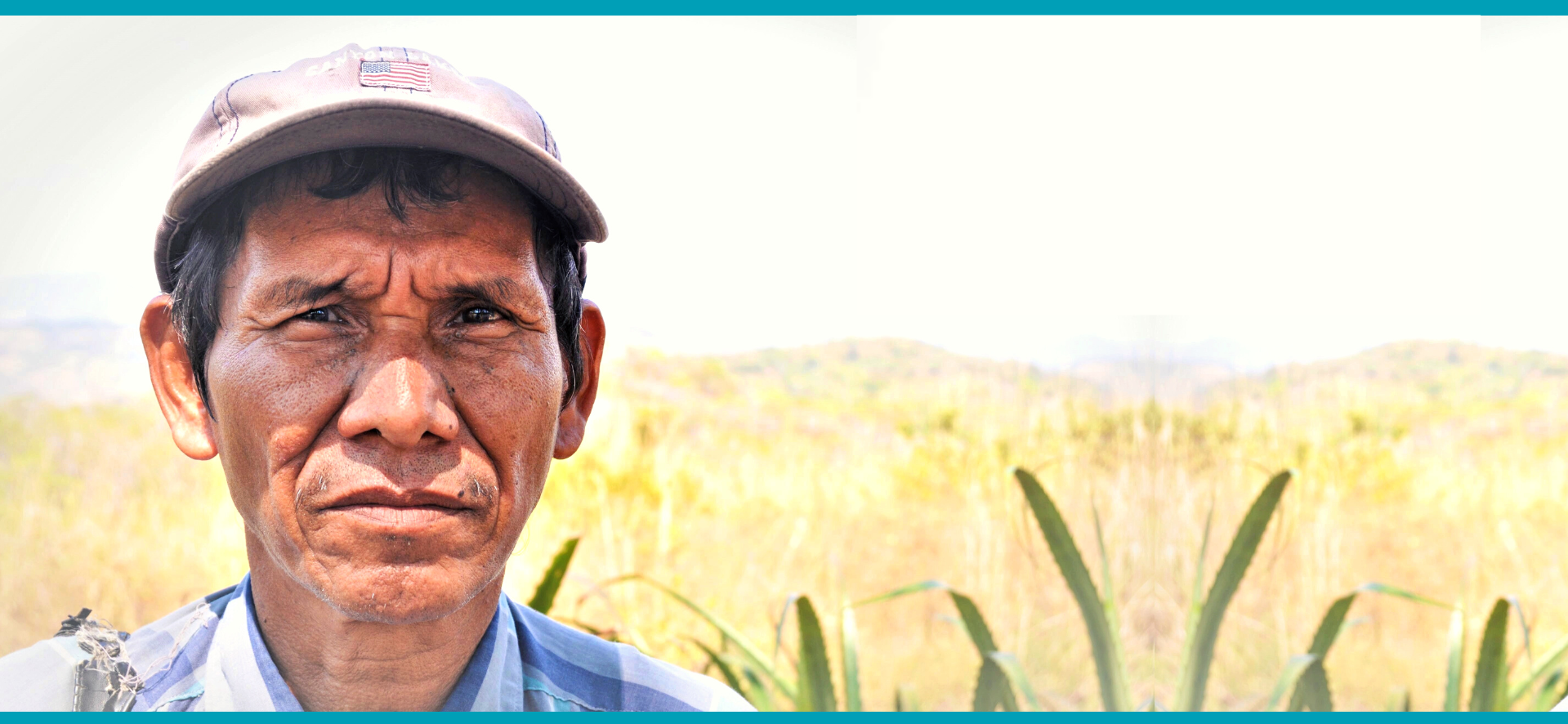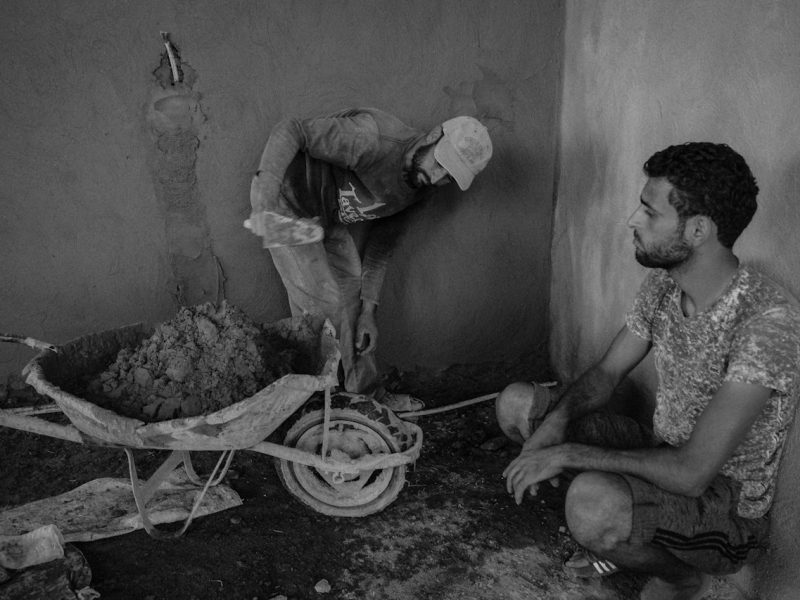
The Climate crisis’ impact on labour migration
BULLETIN 2022 | #8
The Climate crisis’ impact on labour migration
When sudden hazards or slow-onset disasters hit a region, the labour market in that area is hit, too. Today, no region is spared the environmental risks. Extreme floods, wildfires, and droughts, the various effects of climate change expose individuals to violations of their dignity and their rights, with devastating consequences on labour and economy as well.
In the face of the effects of the climate crisis on livelihoods, a growing number of people are migrating, looking for more stable jobs. First attempts will be characterised by internal migration, with people moving to urban centres, where jobs are less influenced by nature and climate change. But those transitions don’t always go smoothly for workers. They might lack social connections or skills or even end up in an oversaturated labour market with no prospect or possibility of a dignified life.
The reallocation of labour is a “natural” consequence of the climate crisis. Many climate displaced workers have started to migrate abroad in relevant numbers and it will likely be a constantly increasing phenomenon. However, in the absence of uniform and effective regulation, there is greater recourse to irregular and precarious migration, thus also fostering vulnerability, family separation, and the danger of human trafficking.
The effects of the climate crisis on labour bear witness to the need for international cooperation, which in turn leads to policies and actions aiming at both the mitigation of and adaptation to climate change and the promotion of safe, orderly and regular migration for climate-displaced people. This Bulletin presents best practices, statements and testimonies that look at the resilience and protection of people whose livelihoods have been affected by climate change.
Protection and empowerment of climate displaced workers
In 2015, Pope Francis intervened at the workshop entitled Modern Slavery and Climate Change: the Commitment of the Cities, recalling his message of “human ecology,” which he had already presented in Laudato si’ – which he precisely defined as a social encyclical, since between the person and the environment “there is a relationship which is reciprocally influential”. Therein, the Holy Father addressed the phenomenon of migration from rural areas which do not offer job opportunities anymore towards the poverty belts of big cities. He defined that “the idolatry of technocracy” – excessive technicization – affects the world of work but also health and the environment. Summarising all these aspects, Pope Francis affirmed: “What happens when all these phenomena of excessive technicization, without caring for the environment, in addition to natural phenomena, affect migration? Unemployment and then human trafficking. Illegal work, without contracts, working ‘under the table’ is occurring more and more frequently.”
In his address (ES; IT; PT) on the occasion of the 30th anniversary of the Central American Integration System, Pope Francis spoke about people forced to flee due to the climate crisis. “Climate phenomena, but also man-made environmental disasters in his work of land grabbing, deforestation and appropriation of water,” the Holy Father explained, “seriously attack the three fundamental areas of integral human development: land, housing and work”. He then called for international mechanisms to provide concrete protection, but also regional protection policies for our ‘common home’ that might aim to alleviate the impact of the climate crisis.
The Migrants and Refugees Section of the Dicastery for Promoting Integral Human Development published its Pastoral Orientation on Climate Displaced People (2021). The document intends to be a guide to understanding the challenges posed by climate disruption and the pastoral care that ought to be offered to climate-displaced people. The booklet highlights ten challenges pertaining to climate change displacement and its victims and suggests appropriate pastoral responses with regard to the effects of the climate crisis on labour migration.
Through the project Volti per le Migrazioni, FOCSIV and GCAP Italy presented a video on climate change and migration (IT/EN). The video shows how the effects of climate change – from desertification to floods – worsen the living conditions of the most vulnerable local populations, from Nigeria to Afghanistan. Faced with this constantly deteriorating situation, a plan for climate justice is necessary, both at the national and global levels. To this end, FOCSIV and GCAP Italy identify some necessary actions, including: the adoption of lifestyles that respect the Earth, the European Union’s contribution to the development of the environment, human rights, accelerating the ecological transition, and protecting and improving the resilience of vulnerable communities in southern countries.
Good practices by Catholic actors
In Monpura, Bangladesh, Catholic Relief Services’ (CRS) launched the Mutki Project to prevent lands from flooding and to find alternative livelihood solutions able to withstand extreme weather events. In fact, that area is often affected by natural disasters like cyclones. The testimony of Noornobi is the shining example of this initiative. His family was poor and their land would often flood, making it difficult to grow vegetables year-round. Thanks to the CRS Mutki Project, local people like Noornobi have the opportunity to have a stable and safe job, without the risk of being forced to emigrate to escape extreme weather events. Noornobi learned how to prevent his land from flooding, farm using chemical-free and organic fertilisers, and raise chickens and ducks to sell. “We have been improving because of vegetable farming … we slowly began to make a profit,” he said.
Most of the 2,000 internally displaced persons (IDPs) living in the Ardjaniré site in Cameroon were forced to leave their homes due to the ongoing violent clashes between fishermen, herders, and farmers in the Far North Region of the country. However, the leading cause of conflict is the scarcity of resources, particularly water, which is linked to climate change. To support internally displaced people in Ardjaniré, the Jesuit Refugee Service (JRS) opened a communal garden in partnership with UNHCR Cameroon. The project aims to enhance the food and livelihood resilience of IDPs by planting 1,800 trees and opening a vegetable garden. Additionally, the garden was designed to allow IDPs to learn new agricultural techniques that they will carry with them wherever they go next. Families in the camp rely on these additional sources of food and income to be able to meet their daily needs. The scarcity of water does not allow for the expansion of the project and the cultivation of more land.
Catholic actors are also working to support climate-displaced populations’ chances to return to their lands safely. The project Back to Beira (IT) was born from the collaboration between Sant’Egidio and the DAD (Department of Architecture and Design) of the Polytechnic of Turin. More than 70 young architects from all continents have worked on the future of Beira – a city in Mozambique hit hard by cyclones Idai and Eloise – and in particular that of displaced people. Thus, starting from the most fragile – the displaced who have lost everything because of the cyclones – they are imagining a future for everyone in a redesigned Beira that can support the harsh impact of climate change. The purpose is to rethink some areas of the city of Beira to be allocated to people with different economic capacities, richer and poorer, with a mixture of private/public intervention in an attempt to bring back at least a part of the displaced population and give them housing and employment opportunities.
With widespread droughts affecting countries in the Sahel and Horn of Africa, Caritas Djibouti has increased its efforts to fight hunger and preserve human dignity through sustainable development training, projects, and advocacy. Under the umbrella of Caritas Internationalis’ global Together We campaign launched in December 2021, Caritas Djibouti is supporting Caritas MONA’s “Together, we fight hunger” project and has successfully trained 10 village communities in permaculture in Djibouti City and the surrounding agricultural areas inhabited by vulnerable communities, who learned land management practices that support the growth of natural ecosystems in a self-sufficient and sustainable way. Caritas Djibouti also carries out projects for the building of wells and underground water tanks in desert areas, targeting drought-affected communities. It organises awareness sessions on the proper management of water resources to avoid waste or contamination.
Stories and testimonies
In the Catholic Diocese of Marsabit in Kenya, starvation is intensifying due to severe drought. Isako Jirma Molu, the Executive Director of Caritas Marsabit, told ACI Africa in an interview that “livestock died in large numbers, leaving pastoralists with absolutely nothing”. He said that the absence of rain for the last four consecutive rainy seasons has destroyed livelihoods. “Children are dropping out of school because school feeding programs have stopped and they are not getting food at home either. The future for these marginalised communities is bleak”, he stated. Galgallo, a Kenyan shepherd, narrates: “Before this drought, I had over 1000 goats, and about 100 camels. Out of that, I have just five camels left.” But even in the face of so many challenges, he is keen to keep sending his children to school: “My last hope now is the education of the children,” he says. In the face of drastically unpredictable weather patterns, many see education as offering a kind of security that pastoralism sadly no longer can. Caritas Marsabit supports Galgallo’s community with food and water, as well as working with them on longer term projects like the installation of a water storage tank. Donations to CAFOD have also helped fund school feeding programmes in the area, ensuring that children at school get healthy meals and can continue to pursue their education.
In Oceania, communities are losing their traditional land to the sea. Loss of maritime territory means the loss of the coral reefs, lagoons, and ocean swells that make up islanders’ traditional territory. It can also mean the loss of fishing and mining rights that could make the nation prosperous. A large number of young Pacific Islanders move away in search of educational or economic opportunities. But this is also a consequence of climate change. Many would prefer to remain, but the effects of climate change make this impossible. “If they were given a choice, they would not relocate because it means leaving ancestral burial grounds and culture,” affirms Archbishop Dr. Peter Loy Chong, President of the Federation of Catholic Bishops’ Conferences of Oceania. Both the Bible and traditional spiritual beliefs say that when God created the world, everything was in balance. “We have to re-educate people on the importance of caring for the environment.” Archbishop Chong believes that the key is to speak the language of God, a language that speaks to victims.
Through the Tagi project, the Tagi movement (Caritas) aims to ecologically and socially transform Oceanian people and engage them to reconnect with the land. They try to do that through artistic expression and empowering the voices of victims of social and ecological injustices, who use their collective voice to speak out against environmental devastation. The strategy consists of three areas of intervention: research, collecting stories among affected communities; education, using music and art to amplify the message; advocacy, sharing videos and holding theatre productions. Then, thanks to shared platforms, the Tagi movement expects to form networks of communities and organisations engaged in the social and ecological transformation.
Download Bulletin
For earlier issues of this Bulletin, please visit: migrants-refugees.va/en/c-19-bulletin
If you would like this Bulletin sent directly to your e-mail address, please send a brief request to media@migrants-refugees.org





